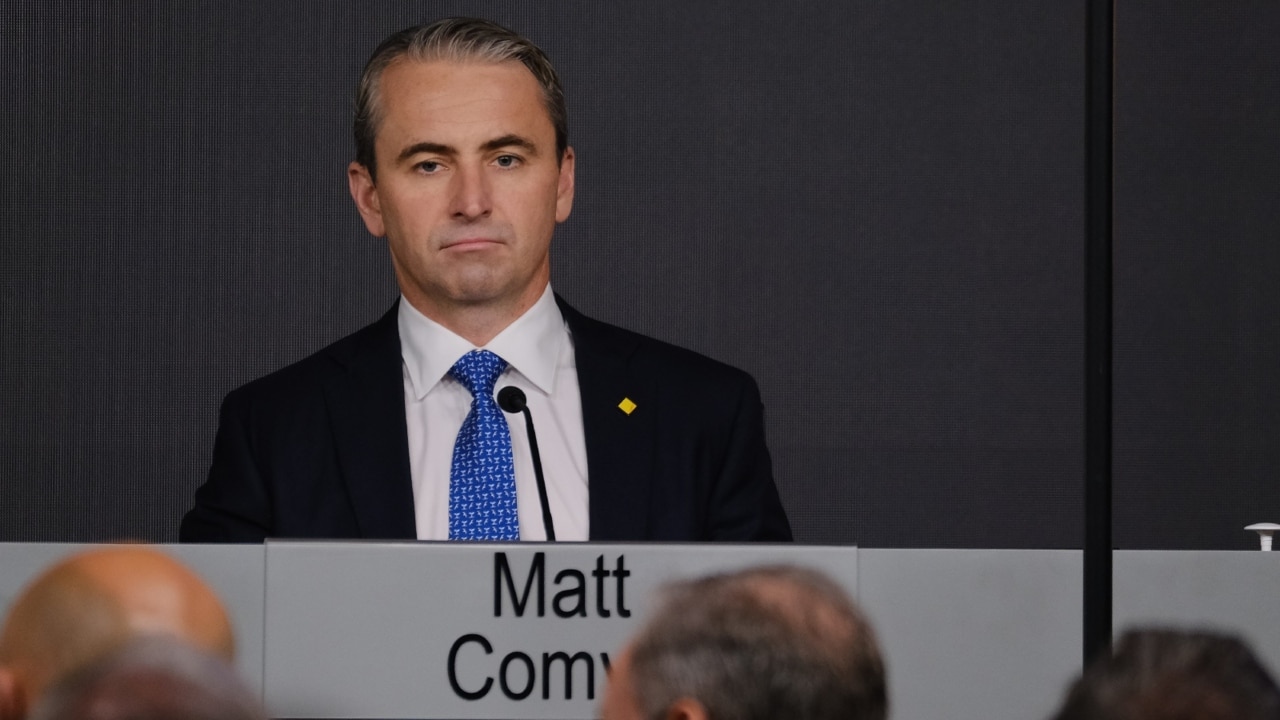Kmart has posted record earnings to help lift Wesfarmers profit
Budget retailer Kmart, the former problem child of the Wesfarmers family, has posted record earnings to help the conglomerate beat profit expectations.

Kmart, once the problem child of the Wesfarmers family, is hitting an earnings sweet spot built on stretched households shopping for value and its juggernaut Anko private label brand, giving Wesfarmers the firepower to overshoot profit forecasts and hike its dividend for the December half.
Part of the Kmart Group, which also owns Target, the discount department store has won legions of new customers and seen its existing loyal shoppers fill up their baskets more over the first half of fiscal 2024 amid the protracted cost of living crisis that has forced consumers to rein in their spending and hunt for bargains.
That hunt led many to the doors of Kmart, enabling it to post record earnings over the first half, and counter flat profit growth from the traditional workhorse for the Perth-based conglomerate, hardware chain Bunnings, as well as Officeworks, and a near 50 per cent slide in profitability at its chemicals and energy division.
The great hope of future growth pinned on Wesfarmers breaking into the lithium sector will also be somewhat delayed. Wesfarmers is on track to produce 50,000 tonnes of spodumene concentrate (high-purity lithium ore) this financial year but collapsing lithium prices and some of the heat coming out of the sector meant at current spot prices the conglomerate was unlikely to turn a profit on those sales.
.

Reflecting on the economic settings, which is bolstering parts of his conglomerate but also putting the handbrakes on others, Wesfarmers managing director Rob Scott said he was still concerned about elevated domestic inflation and supply chain disruptions that could threaten the prospects of near term interest rate cuts by the Reserve Bank.
“A lot of raw material prices and imported inflation has started to normalise, post Covid, that is improving, but we are still seeing a lot of domestic cost pressure,” Mr Scott told The Australian after Wesfarmers on Thursday posted 3 per cent rise in its half-year profit to $1.42bn.
Wesfarmers beat analyst forecasts for its interim profit by almost $100m, sales lifted 0.5 per cent to $22.67bn and the company also hiked up its interim dividend to 91c per share, up from 88c, and payable on March 27.
The market rejoiced on the better profit and higher dividend, sending Wesfarmers shares up 5 per cent to $62.11 after the result was released.
“If you speak to any business in Australia, whether it is big or small, they are seeing a lot of costs of doing business go up so I think the risk with inflation is that unless we can see some improvements in cost of doing business, domestic inflation may be a bit more persistent. But time will tell,” the conglomerate chief added.
“The Risk that we would see is if domestic inflation stays more persistent then it will be harder to decrease (interest) rates.”
Mr Scott also was critical of the Albanese government’s right to disconnect legislation, calling it “unnecessary red tape” that would only add to the already existing complexity of the nation’s industrial relations framework and burden businesses with more costs.
Turning to the first-half results, Kmart was the star performer over the first half, stealing some of the limelight from Wesfarmers champion division Bunnings, as the clothing and merchandise retailer posted record earnings.

Kmart Group, which houses twin discount chains Kmart and Target, improved earnings by 26.5 per cent to $601m. Kmart Group sales increased by 4.8 per cent to $5.99bn as return on capital for the division lifted to 58.8 per cent.
“Kmart Group delivered record earnings for the half, reflecting the market-leading value credentials of its Anko products as well as actions to drive cost efficiencies, and a moderation in some key input costs,” Mr Scott said.
Its budget-focused Anko private label brand has resonated with shoppers, especially amid cost of living pressures, and it is steadily growing across categories including branching into homewares and general merchandise in Target in the second half.

At Bunnings, which still contributes more than half of Wesfarmers’s total earnings, sales rose 1.7 per cent to $9.95bn as earnings were flat, up just 0.3 per cent to $1.28bn which is a far cry from when the hardware retailer racked up consistent double-digit profit growth. It was a quieter half for Officeworks too which saw its earnings gain 1.2 per cent to $86m.
Mr Scott said given the high levels of growth Bunnings and Officeworks had delivered in recent years their profit gains this half were still a “really strong outcome”.
“There are very few retailers that are actually moving their profits forward year on year and I think that goes to the strengths of the businesses.
“What has worked well for us over the years is that we always encourage our businesses to focus on long term value creation and not play the short term gains that sometimes companies can get caught up with, where they are trying to manage profit on a short-term basis.
“So that focus has helped create long term shareholder value over the years.”
These stronger performances, led by Kmart Group but bolstered by Bunnings and Officeworks helped counter a 46.9 per cent earnings slide by its chemicals and energy arm WesCEF to $172m, a $41m loss at Catch (although this was down from a $108m loss in the first half of 2023) and flat earnings of $27m at its health business that owns Priceline.
The conglomerate will continue to invest in its operations to deliver long-term growth platforms and expects net capital expenditure of between $1bn and $1.2bn for the 2024 financial year, subject to net property investment and the timing of project expenditures.






To join the conversation, please log in. Don't have an account? Register
Join the conversation, you are commenting as Logout